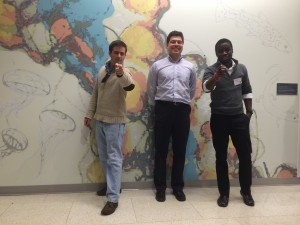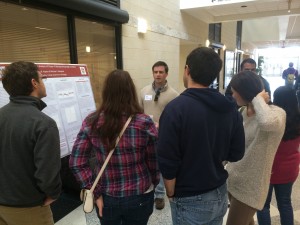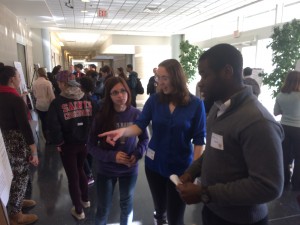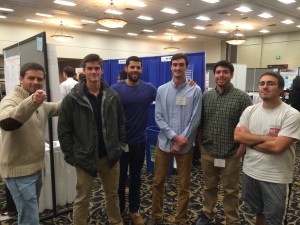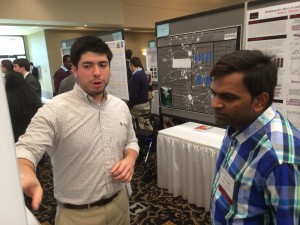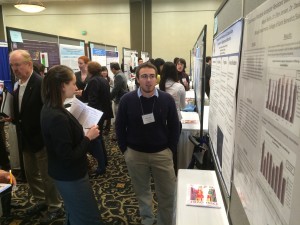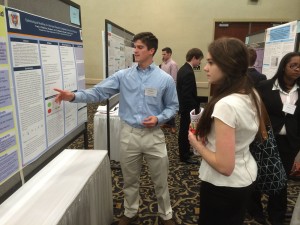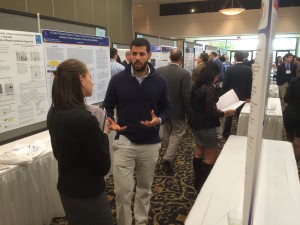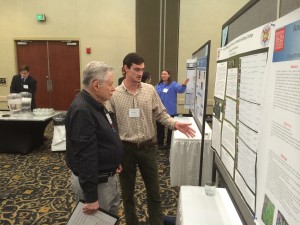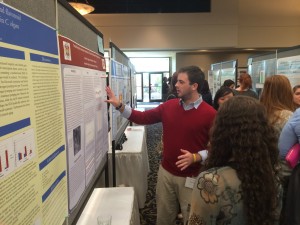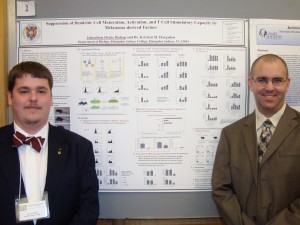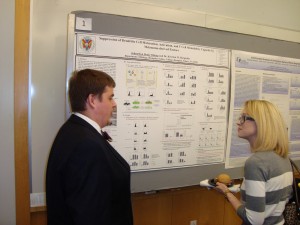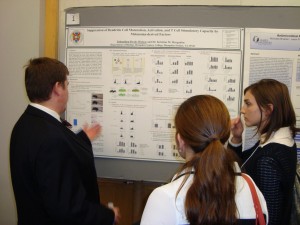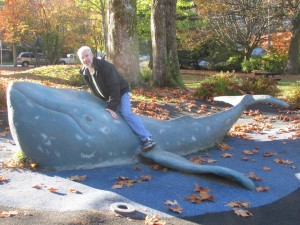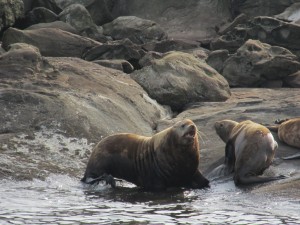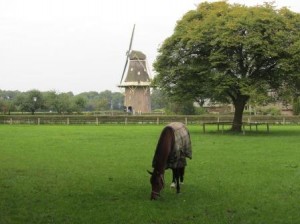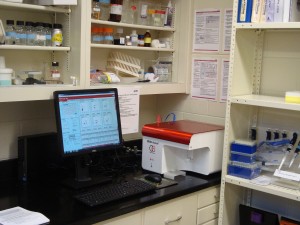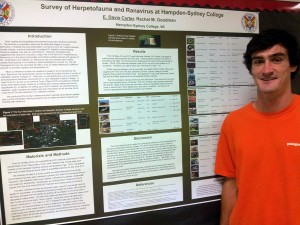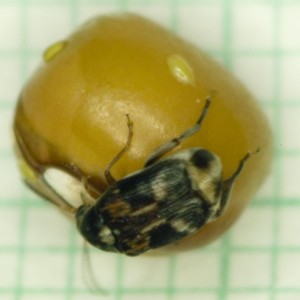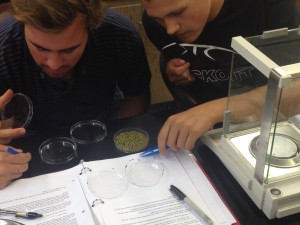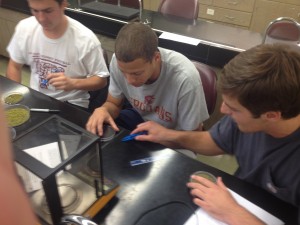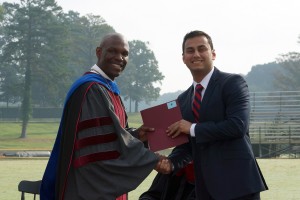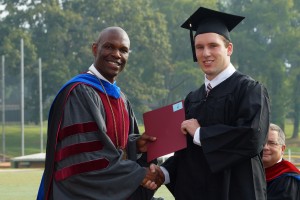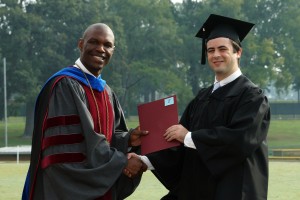The Biology department has received $10,200 for the purchase of laboratory equipment related to the teaching of synthetic biology, or the construction of biological “machines” in bacteria based on precise DNA parts, from the Genome Consortium for Active Teaching (GCAT). GCAT, founded and directed by Dr. A. Malcolm Campbell at Davidson College, provides training and development opportunities to build classroom-based research experiences in genomics and synthetic biology. The H-SC grant, made possible by a grant from the National Science Foundation (NSF) to GCAT, will enable the biology department to purchase updated technology for the amplification and screening of DNA for research in both independent and classroom settings.
Category Archives: Uncategorized
H-SC phage researchers present work at “Phage Phaire 2013”
Hampden-Sydney’s Biology department has been affiliated with the Howard Hughes Medical Institute (HHMI) Science Education Alliance-Phage Hunters Advancing Genomics and Evolutionary Science (SEA-PHAGES) program since 2011. The program has provided a research network centered on viral discovery and research that has given 23 H-SC biologists first-hand research experience in the last two years. Two of these students, James Hughes ’14 and Daniel Osarfo-Akoto ’15, have been doing independent research projects on phage discovery and characterization and accompanied the departments Dr. Mike Wolyniak to James Madison University to present their research at “Phage Phaire 2013”.
The gathering was organized by the biology department at JMU and consisted of students from JMU, Hampden-Sydney, VCU, and Mary Washington who have been working on the SEA-PHAGES project. Representatives from HHMI and guest speakers from NC State University were also on hand.
The SEA-PHAGES project is continuing at Hampden-Sydney in 2014 in the form of genomic sequence analysis in Biology 313 (Genomics) in the spring semester and the isolation and characterization of a new set of phages in Biology 312 (Molecular Biology) in the fall semester.
6 H-SC students present research work at Sigma Xi national meeting
The Sigma Xi Scientific Research Society held its annual student research conference in Durham, NC as an opportunity for science students ranging from the high school to postdoctoral level to present their research progress in a professional setting. Six Hampden-Sydney students presented their research at this meeting, which was attended by students from all over the United States and from large research institutions including Duke, Cornell, the University of Rochester, and Georgetown.
The meeting gave the Hampden-Sydney students the opportunity to receive outside feedback on their research and to get experience in how a professional meeting work in the biological sciences. Workshop opportunities allowed students to learn about career opportunities in science journalism and finding summer research opportunities.
Drake Bishop ’14, Dr. Kristian Hargadon ’01 Present Melanoma Research at ASM Conference
On Friday, November 8 H-SC senior biology major Drake Bishop and Elliott Assistant Professor of Biology Dr. Kristian Hargadon ’01 presented their research on melanoma-associated suppression of dendritic cells at the University of Virginia at the VA Branch Meeting of the American Society for Microbiology. Drake began his research project in collaboration with Dr. Hargadon through the H-SC Student/Faculty Summer Fellowship Program, and he is currently extending this work throughout this academic year for his Senior Honors Project in Biology. This work builds off of previous in vitro data from the Hargadon Laboratory demonstrating melanoma-associated suppression of the maturation and activation of dendritic cell lines. Dendritic cells are critical regulators of host immune responses that often control the activation versus tolerization of an immune response. Drake’s work has extended earlier studies by examining how melanoma-derived factors impact the maturation and activation of dendritic cells isolated from the spleens of mice. In this ex vivo system, Drake has demonstrated that the activity of these bonafide dendritic cells is also altered by melanoma-derived factors, and he has identified partial roles for TGFbeta1 and VEGF-A in this tumor-induced immune suppression. Next year, Drake will be attending Eastern Virginia Medical School, where he was accepted as a sophomore through the College’s early acceptance articulation agreement. He plans to specialize in immunology!

